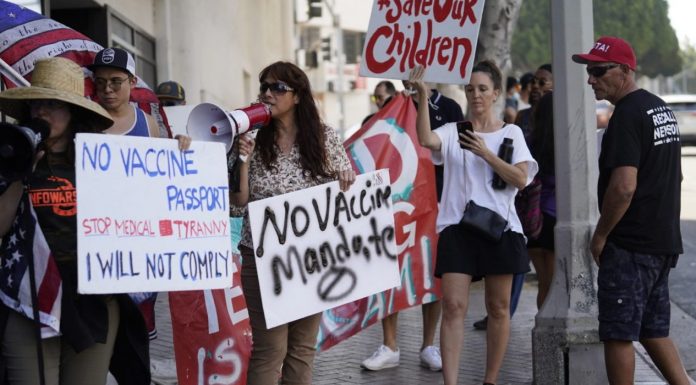(Headline USA) The Food and Drug Administration announced on Friday that it is delaying the administration of the Moderna COVID-19 vaccine to teenagers, citing concerns about a heightened risk of myocarditis that can be caused by the shot.
FDA officials have not officially determined whether the risk of myocarditis, or heart inflammation, is higher among young adults who get the shot, but they decided to conduct a thorough review of all available data before extending the vaccine’s eligibility, according to the Wall Street Journal.
Moderna’s chief medical officer, Paul Burton, denied that the risk of myocarditis is something to be concerned about.
“I think people can be reassured that the risk of myocarditis with an mRNA vaccine is low; it appears to be balanced between the different products,” he claimed.
However, a growing amount of anecdotal evidence begs to differ.
Scrutiny of the vaccines is likely to be further heightened by the death, announced Monday, of former Secretary of State Colin Powell, who was fully vaccinated, due to COVID “complications.”
Swedish and Danish officials announced earlier this month that they would also pause the use of the Moderna vaccine for all young adults and children, citing similar concerns about the vaccines’ side effects.
Myocarditis is most common among young men, in connection with, for example, viral infections such as COVID-19. In 2019, approximately 300 people under the age of 30 were treated in hospital with myocarditis.
Data point to an increased incidence also in connection with vaccination against COVID-19, mainly in adolescents and young adults and mainly in boys and men.
New preliminary Nordic analysis indicates that the connection is especially clear when it comes to Moderna’s vaccine, especially after the second dose, the agency said.
“The increase in risk is seen within four weeks after the vaccination, mainly within the first two weeks,” it said.
Moderna Chief Executive Stéphane Bancel downplayed these European countries’ policies regarding the Moderna shot.
“Some countries want to be ultraconservative, it’s of course their prerogative, but with the data I’ve seen I would be comfortable with anybody in my family who is a young male getting the vaccine,” he said.

